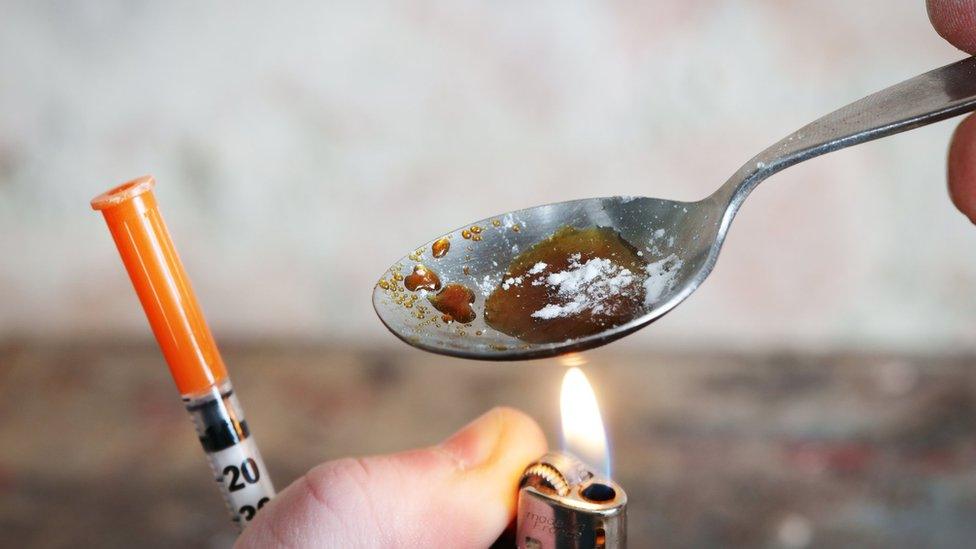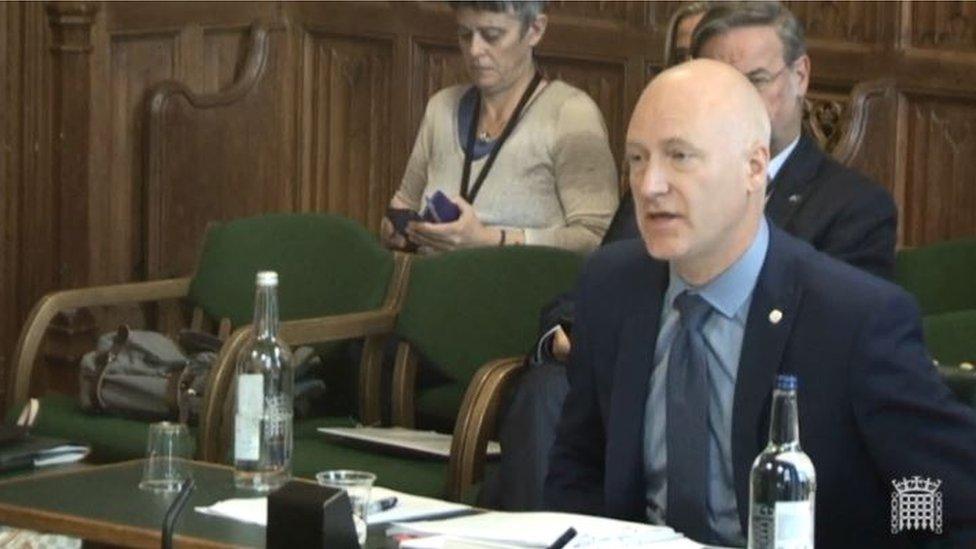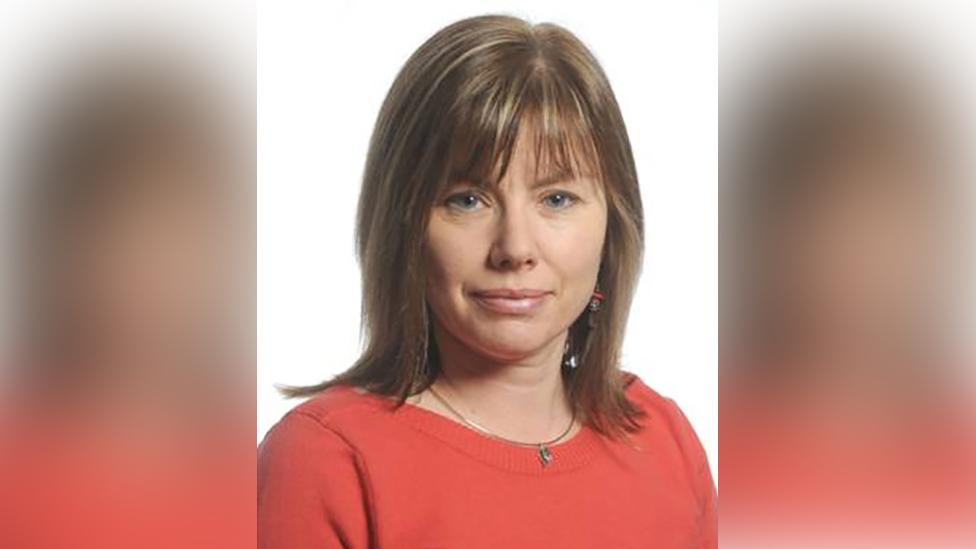Minister hopes drug deaths record will be 'wake-up call'
- Published

Drug-related deaths in Scotland are already at a record high
As many as 1,200 people may have died from drug abuse in Scotland in 2018, with MPs told this should be a "wake-up call" over government policy.
New figures are to be published in the coming days, with drug-related deaths in Scotland already at a record high.
Scottish Public Health Minister Joe Fitzpatrick told MPs that 2018's figure could hit 1,200, describing the problem of drug misuse as an "emergency".
He has set up a taskforce to examine the law and advise ministers on policy.
Mr Fitzpatrick also called for more powers to be devolved to Holyrood to deal with the issue, with drugs legislation including the Misuse of Drugs Act currently reserved to Westminster.
There were 934 drug-related deaths registered in Scotland in 2017, up 8% on the previous year and more than double the UK average.
This was already the highest level since current records began in 1996 and more than double the figure for 2007, but Mr Fitzpatrick told Westminster's Scottish Affairs Committee that worse was to come.
He told MPs: "We know that last year over 900 people died of drug overdoses, and this year we are expecting that to be in excess of a thousand. I've heard some figures suggesting that it may be as high as 1,200 when figures are released in the coming days.
"I hope that is a wake-up call. My ask is that we should work together on this to save lives."

Joe Fitzpatrick said the UK and Scottish governments should work together to "save lives"
Prof Catriona Matheson has been appointed to chair the new drugs taskforce, announced by ministers in March.
Her team will look at potential solutions including the establishment of medically-supervised drug consumption rooms - a move designed to stop drug users injecting in the street or other unsafe locations, but which has been blocked by the UK government.
Glasgow City Council is keen to pilot such a scheme, but the Home Office has refused to support it due to concerns over law enforcement, ethical quandaries and the risk that drug users could travel long distances to use the facilities.
The taskforce is also to look at the idea of decriminalising drugs altogether, with Mr Fitzpatrick confirming that "all those sorts of options" would be considered.
However he warned of "challenges" around this idea, saying that "it means different things to different people", and said the taskforce would "look at the best evidence from around the world".
The minister said his preference was for Holyrood to be given to powers to act, but said he would work constructively with UK counterparts if this was not possible.
He said: "I think devolving powers to the Scottish Parliament would be the best way for us to have a more joined up approach in terms of the interface between the health and social care system and the justice systems, but if that's a step too far for the UK government I'm absolutely happy to sit down with them to work out how we can take a public health approach to save lives in Scotland."
- Published5 July 2019
